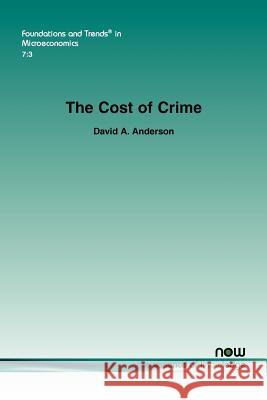The Cost of Crime » książka
The Cost of Crime
ISBN-13: 9781601985903 / Angielski / Miękka / 2012 / 72 str.
The Cost of Crime provides estimates of the annual cost of crime in the United States. A better understanding of the repercussions of crime could guide the prioritization of law enforcement, education, and social programs that deter criminal activity. Traditional measures of criminal activity count crimes or estimate direct costs that typically include the costs of policing, corrections, criminal justice, and replacing stolen merchandise. This study estimates the burden of a broad set of crime's repercussions, both direct and indirect, to tell a more complete story. This study places less emphasis on imprecise counts of crimes than most previous measures of crime's burden. The comprehensive approach adopted here captures several types of cost shifting that can result from crime prevention efforts. The inclusion of private crime prevention expenditures in this study captures the potential for public expenditures to reduce total societal outlays for crime, with or without a decrease in the crime rate. The comprehensive scope of this study also accounts for regional shifts in crime. This study examines costs for the entire nation, which accounts for the possibility of losses in one region of the United States substituting for losses in another. For the purposes of this research, the cost of crime is defined to include all costs that would not exist in the absence of illegal behavior under current law. The benchmark in this study is perfect compliance with the law. The Cost of Crime speaks to the benefits of cooperation and ethical behavior. In the ideal state of voluntary legal compliance, there would be no need for expenditures on crime prevention, no costly repercussions of criminal acts, and no losses due to fear and distrust. We will not reach that ideal state, but with knowledge of the full cost of crime, we also know the benefit of eliminating a more realistic fraction of that cost. Valid questions remain regarding the inclusion of particular cost components in the calculation of crime's burden. The approach here is to sidestep unsolvable debates by providing itemized lists of crime-cost elements. This enables the reader to adopt customized formulations for the cost of crime.











